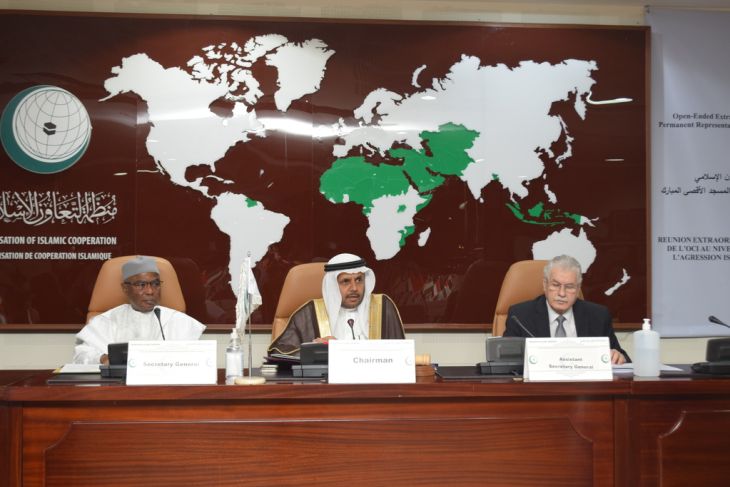Jakarta – An special conference of the Organization of Islamic Cooperation (OIC) member countries’ permanent representatives examined Israeli assault towards Al-Aqsa and the escalation of the Israeli-Palestinian conflict.
At the meeting, OIC Secretary General Hissein Brahim Taha reaffirmed the Organization’s total commitment and support for Palestinian people’s rights to sovereignty over their occupied land, including East Jerusalem, as the capital of the State of Palestine, as stated in a release issued by the Union of OIC News Agencies (UNA) and received here on Tuesday.
Taha emphasized the religious and spiritual importance of Jerusalem City and the eternal connection of Muslims around the world to the beautiful Al-Aqsa Mosque in his opening remark at the open-ended extraordinary meeting of the OIC Executive Committee at the level of Permanent Representatives.
The discussion focused on Israel’s ongoing assault on the holy Al-Aqsa Mosque.
The conference was presided over by the Kingdom of Saudi Arabia, chair of the 14th Islamic Summit, and was held in the OIC General Secretariat on Monday (April 25) at the request of the Republic of Indonesia.
The OIC secretary general acknowledged that he had sent letters to many international actors conveying the OIC’s rejection and condemnation of Israel’s plans to impose temporal and spatial division on the hallowed Al-Aqsa Mosque.
He also urged all international actors and the world community to act promptly to put an end to Israel’s aggression in the holy sites.
Secretary General Taha called for unprecedented political, economic, and media efforts to protect Al-Quds and its holy places, to support its residents’ resilience in opposing Israeli Judaization schemes, and to defend the Palestinian people’s fundamental rights.
He also urged all international actors and relevant international organisations to take appropriate political and legal steps against Israel, the occupation power, and to apply pressure on it to end its continuous atrocities against the Palestinian people and their holy places.
Furthermore, he urged all international actors to take responsibility and get involved in sponsoring a political path that will end the Israeli occupation and result in the establishment of an independent and sovereign state of Palestine on the 1967 borders, with East Jerusalem as its capital, in accordance with international law, relevant United Nations resolutions, and the Arab peace initiative.
Meanwhile, the Permanent Representative of the Kingdom of Saudi Arabia to the OIC, Saleh Bin Hamad Suhaibani, issued a statement in which he stated that the Custodian of the Two Holy Mosques, King Salman Bin Abdulaziz Al-Saud, stated during his presidency of the 29th Arab Summit in Dhahran that “Palestine is our first cause, and Palestine and its people are in the conscience of Arabs and Muslims.”
“This will continue to be the case until the brotherly Palestinian people receive all of their lawful rights, most notably the foundation of the State of Palestine,” Suhaibani stated again.
“Until the brotherly people of Palestine realize all their rights guaranteed by international legitimacy decisions and the Arab peace initiative,” he added, “the cause of Palestine is the vital pillar of the OIC work and the focus of our attention.”
According to Suhaibani, the Kingdom of Saudi Arabia firmly opposes and denounces Israel’s persistent and provocative onslaught and violence against worshipers at the hallowed Al-Aqsa Mosque.
He also stated that Saudi Arabia continues to call on the international community to act effectively in holding Israeli occupation forces fully accountable for those crimes and violations, as well as the negative impact on the chances of reviving the peace process, as provocative acts threaten to spark conflict in the region.


